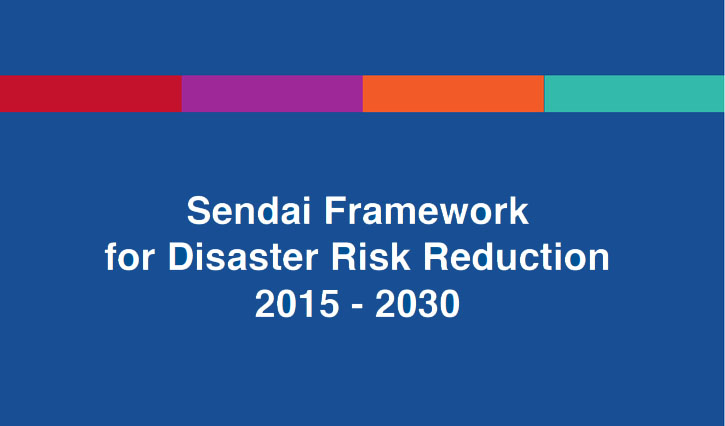Regional Forum - Meeting of the Heads of Emergency Authorities of CA Countries
The Regional Forum – Meeting of the Heads of Emergency Authorities of Central Asian countries was established in compliance with final documents, adopted during the following Regional ministerial conferences:
- Regional Ministerial Conference “Regional Cooperation in the field of disaster risk reduction in Central Asia”, 16-18 October 2013, Bishkek;
- Second Regional Ministerial Conference of Emergency Authorities of Central Asian countries within the frame of the Dialogue “Central Asia + Japan”; 18 – 19 September 2014, Bishkek;
- Regional Ministerial Conference of Central Asian and South Caucasus countries for disaster risk reduction, 29-30 January 2015, Bishkek;
- Regional Ministerial Conference of Central Asian countries on disaster prevention and response; 24-25 November 2015; Ashgabat, Turkmenistan;
- Regional Meeting of the Heads of Emergency Authorities of Central Asian countries for disaster risk reduction, 31 March 2017, Dushanbe, Tajikistan.
The Countries-participants of the Regional Forum are the Republic of Kazakhstan, Kyrgyz Republic, Republic of Tajikistan, Turkmenistan and Republic of Uzbekistan, the Regional Forum is open to join other countries.
The Regional Forum is an auxiliary mechanism on strengthening and developing the regional cooperation in the field of disaster risk reduction, prevention and elimination of emergencies, and acts as a permanent consultative platform.
The Regional Forum in its activities is guided by the goals of Agreement between the Republic of Kazakhstan, the Kyrgyz Republic, the Republic of Tajikistan and the Republic of Uzbekistan on cooperation in the field of prevention and elimination of emergencies, dated 17 June 1998, and other bilateral and multilateral interstate and international agreements in the field of disaster risk reduction, prevention and elimination of emergencies.
The Regional Forum in its activities adheres to priorities and principles of Sendai Framework for Disaster Risk Reduction 2015-2030, Goals for Sustainable Development for period till 2030 taking into account national legislation and priorities, as well as international commitments of countries-participants.
Functions:
The Regional Forum implements following functions:
- facilitation of implementation of general directions of regional cooperation development in the field of disaster risk reduction, prevention and elimination of emergencies,
- foster the capacity building on disaster risk reduction, disaster prevention and response at the regional and national levels;
- cooperation with international, governmental and non-governmental organizations of other countries in order to study advanced achievements and experience exchange in the field of prevention and elimination of emergencies;
- qualification improvement of experts and specialists of Emergency Authorities through assistance in organization and conducting of experience exchange, trainings, workshops, drills and other events;
- development of proposals and recommendations on consideration and approval of analytical and methodological materials;
- support of scientific and technical programs on prevention and investigation of the causes and disaster consequences.
Composition and rights:
The Regional Forum is composed of the Heads of State Authority from each country, responsible for prevention and elimination of emergencies.
The Regional Forum is authorized to take a decision within its competence. If it is impossible to attend at the meeting for a good reason any Head of a State body authorized in the field of emergency prevention and response, its functions can be temporarily assigned to an authorized representative of the respective country with notification of the Chairman of the Regional Forum.
Executive Bodies of the Regional Forum:
The Secretariat of the Regional Forum is the Center for Emergency Situations and Disaster Risk Reduction in Almaty.
An executive body of the Regional Forum is a Working group of the Regional Forum.
Chairmanship:
Chairmanship of the Regional Forum carries out by the Head of State Body, authorized in the field of prevention and elimination of emergencies, representing the country on whose territory the next meeting of the Regional Forum is held.
Organization of activities:
The Regional Forum organizes its activity based on Action Plans on the implementation of Framework on strengthening of the regional cooperation of Central Asian countries in the field of disaster risk, prevention and elimination of emergencies.
Meetings of the Regional Forum are conducted not less than once every 2 years.
If it is impossible to conduct a regular meeting of the Regional Forum the presiding Party informs countries- participants through diplomatic channels.
The presiding Party sends for approval to countries-participants a draft of agenda and proposals on meeting dates not later than 3 months before the meeting.
Extra meeting of the Regional Forum may be convened by proposal of one or more countries – participants. In this case an initiating party sends proposal in writing form to the Chairman of the Regional Forum, and reports about goals of extra meeting, date and place of event, as well as about proposed agenda.
Decisions of the Regional Forum are taken by consensus. The outcome of the Regional Forum meeting is the Protocol.
The costs, associated with the participation of national delegations are covered by delegated party or by financial support of international organizations.
Receiving country sets up essential conditions to conduct the meeting of the Regional Forum. Operational language of the Regional Forum – Russian.
Documents approved within the framework of the Regional Forum:
Regional Forum - Meeting of the Heads of Emergency Authorities of Central Asian Countries
The Regional disaster risk profile of Central Asian countries
Regulation on the Regional Emergency Response Coordination Mechanism















